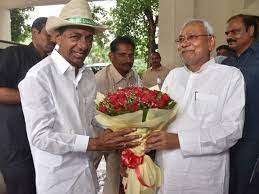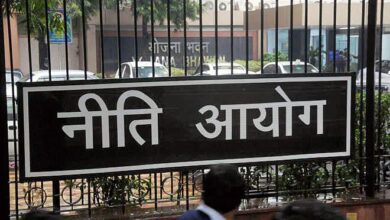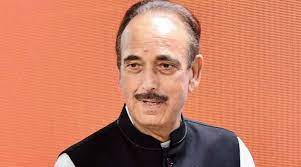Election bonds: ADR files a petition with the SC, accusing SBI of contempt for withholding information
The lead petitioner in the Election Bond case, the Association for Democratic Reforms (ADR), went to the Supreme Court on Thursday to request permission to start a contempt of court case against the State Bank of India (SBI) for not disclosing the information by the deadline of March 6.

The SBI has unlawfully, willfully, and intentionally disregarded the Apex court’s February 15 ruling in the Electoral Bond matter, according to ADR’s appeal, which was submitted to the Supreme Court.
The SBI had earlier, on March 4, filed a petition with the Supreme Court requesting that it provide an extension of time to June 30, 2024, for the provision of ElectionBond information to the Election Commission of India (ECI).
In its ruling on February 15, the Supreme Court ordered SBI to provide the information to the ECI by March 6.
Senior Supreme Court employees and the registry predict that the Top Court will hear arguments in the SBI case on Monday, March 11. However, it’s still unclear whether the SBI’s plea and the ADR plea would be considered concurrently. However, ADR is also asking that the SC hear both SBi’s and its contempt plea on March 11 of this year.
In their petition, the ADR said that the SBI application is dishonest and exhibits willful and intentional disregard for the ruling. In their case before the Apex Court, the ADR said, “Defiant approach by SBI towards citizen’s Right to know, is reprehensible and betrays its motive to stifle citizen’s voice and right to audit actions of the political class.”
Picture used as a stand-in Some people are skeptical about SBI’s request for four additional months to collect data on election bonds alone.
In its plea of contempt, the ADR said that while the SBI had easy access to the data, it had not followed the court’s orders. As a result, it has asked the court to order the SBI to immediately provide bond data.
In its petition query, the ADR said that the SBI had betrayed its intention to suppress voters’ right to know by requesting a “last-minute” extension of time to avoid disclosing donor details before to the Lok Sabha elections.
In a historic decision, the Supreme Court ordered banks to cease issuing bonds on February 15th, ruling that the electoral bonds program must be declared unlawful.
A five-judge panel of the Supreme Court, led by Chief Justice of India (CJI) Dr. Dhananjaya Yeshwant Chandrachud, had declared in the ruling that “the Union has been unable to establish the measure adopted in clause 7(4)(1) of the electoral scheme is the least restrictive measure.”
ADR said that while technology has made it possible for bonds to be easily tracked down using unique serial numbers, it is ‘inconceivable’ that about 2.6 lakh SBI personnel were unable to even identify and share data with the Apex Court in a three-week period.
Any individual, corporation, enterprise, or organization of people may acquire an electoral bond, which is a financial instrument akin to a promissory note or bearer bond, as long as the buyer is an Indian citizen or has been incorporated or created in India.
Picture used as a stand-in In Tamil Nadu, the CPM is the lone party protesting SBI’s tardiness in providing data on election bonds.
The Finance Act of 2017 established electoral bonds and altered three other legislation (the RBI Act, the Income Tax Act, and the Representation of People Act) to make it possible to introduce them.
At least five distinct legislation were amended by the Finance Act of 2016 and 2017, and several petitions were submitted to the highest court contesting these changes on the grounds that they had allowed political parties to receive unrestricted, limitless financing.
The appeals said that the money bill path was used to avoid the Rajya Sabha, where the BJP administration in power lacks a majority.
The Supreme Court was petitioned by ADR, Common Cause, and Jaya Thakur, who contested the Electoral Bond plan.
They asserted that as a result of the amendments, political funding transparency was destroyed because annual contribution reports submitted by political parties to the Election Commission of India (ECI) would no longer have to include the names and addresses of the people who made electoral bond contributions.
A system of electoral bonds that may be issued by any scheduled bank for the purpose of financing elections was created by the Finance Act of 2017.
Picture used just as a representation
In the new India, the country looks for, Modi hides: Congress’s jab at the problem of electoral bonds







